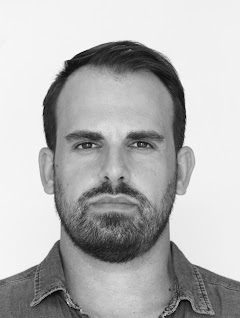Beat
I typically cover general news, politics, sports and the Vatican.
One Shot

“My favourite picture is the one I took of Miracle, a baby born onboard the Aquarius search and rescue vessel as we were sailing off the coast of Libya on May 26, 2018. The Doctors Without Borders spokesperson told us a woman had just delivered. Some moments later, the midwife brought the baby to the main deck of the boat. All the rescued people started dancing, singing and playing the drums to celebrate a new life. This picture has great significance for me as it reminds me how valuable life is, and that no matter what, life always finds a way.”
Profile
My first memory of photography dates back to when I was 5 or 6. I was on holiday with my family and my father was taking pictures of my mother and I with an Olympus OM-10. Upon asking my father if I could use the camera, he agreed and explained to me how to frame, focus, press the shutter and reload. When I was 14, my mother bought my father a digital camera, which he never even took out of the box. One day, I decided to start figuring out how to use it instead, exploring the shots I could take.
I’ve always had an innate curiosity. When something was happening, I needed to be present, find out what was going on and document the proceedings. Photography, therefore, has always felt to be a natural method to tell stories.
My first assignment happened in 2014 when I was based in Palermo. I got a call from a staff photographer asking me to drive to the harbour to cover the disembarkation of rescued migrants. When I got there, I realised I was very far away from the boat and the light was horrible. I filed 3 or 4 pictures, but they were barely acceptable. Luckily for me, in the afternoon, I covered two more disembarkations. It was a big chance for me and I wanted to prove I could do better than I had in the morning. I remember walking a lot to try and get a good position and filing pictures from different angles. It went much better and everyone was happy. That day I learnt when you work for Reuters, you can’t be satisfied with taking average pictures, you always have to strive for the best and get great shots to tell the story.
Spending three months onboard the Aquarius search and rescue vessel covering the migrant crisis was momentous, as this was a place where life and death collided. Without a phone signal and with patchy internet, you are separated from everyday life and have a lot of time to look inside yourself and think. Photographers have a privileged spot on the inflatable rescue boats as we are the first to document the moment when more than 100 people who have spent the last 2-3 days at sea on a sinking boat realise they are safe, about to be rescued. I remember seeing doctors and university professors in distress on those boats, which reminded me that any one of us could be in that position, it just depends which part of the world you were born in. Most of the rescued people I met in those three months showed me how to believe that a change was possible, and taught me how to fight for things we quite often take for granted, like being alive.
When you work for an international news agency, your audience is the world. My main thought when I am out covering a story is to report it honestly. I like to think that I am the eyes of those who are not there, and that it’s my duty to show them what’s going on in an impartial and objective way.
To a photojournalist starting out now, I would say when you think you have a good portfolio, don’t keep the pictures in a drawer. Get them out, send them to photo editors, meet with people who work in the editorial business and show them your work. The ability to shoot video is also crucial. Whether you like it or not, you have greater chances to get an assignment if you are also able to shoot video. So make sure you are working on building this skill too.
Behind the Scenes

